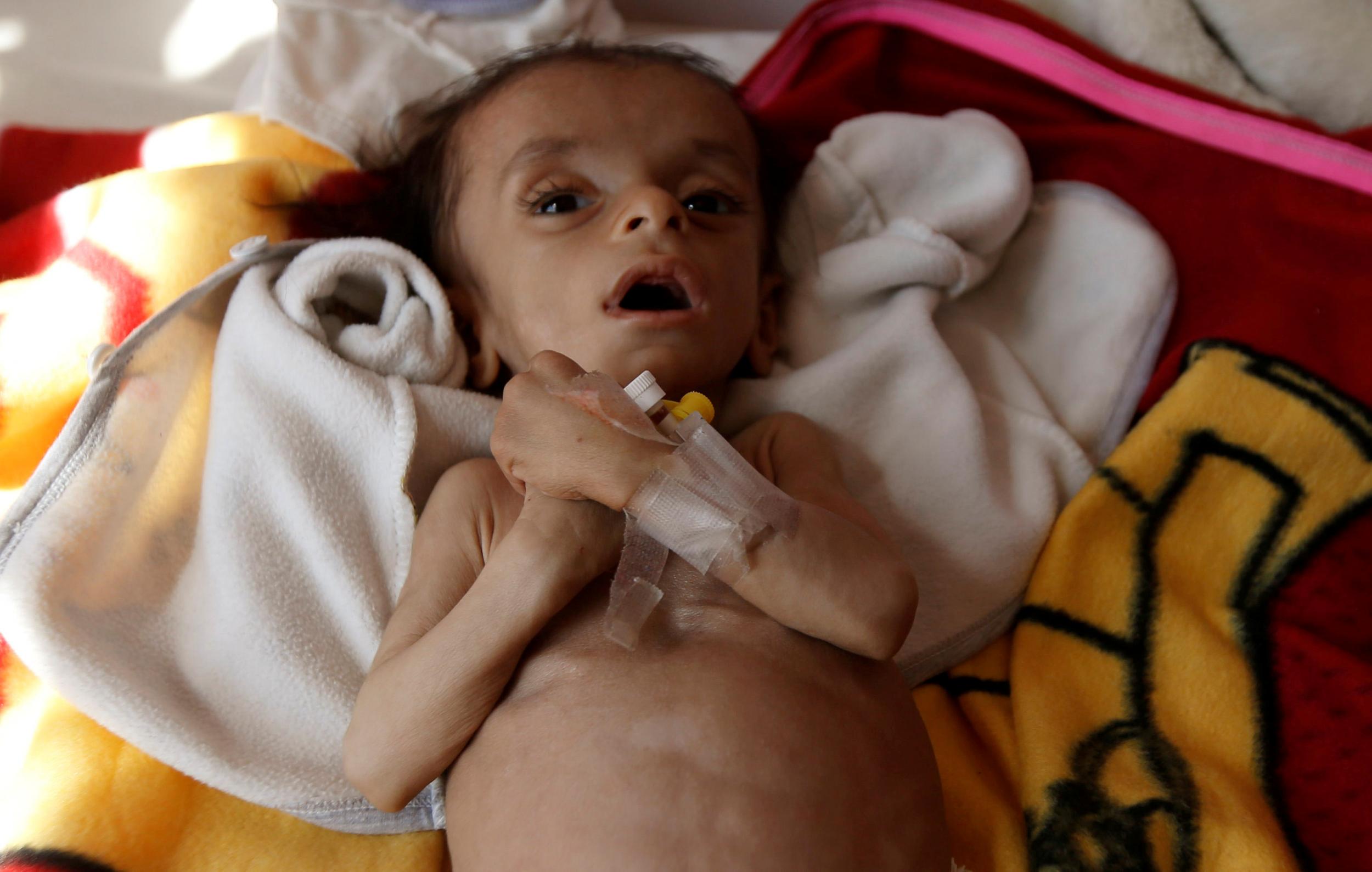Yemen civil war: UN chief calls for an immediate ceasefire as millions risk 'mass hunger, disease and death'
Antonio Guterres' intervention comes as the country's capital Sanaa is paralysed by street fighting between rival factions

Your support helps us to tell the story
From reproductive rights to climate change to Big Tech, The Independent is on the ground when the story is developing. Whether it's investigating the financials of Elon Musk's pro-Trump PAC or producing our latest documentary, 'The A Word', which shines a light on the American women fighting for reproductive rights, we know how important it is to parse out the facts from the messaging.
At such a critical moment in US history, we need reporters on the ground. Your donation allows us to keep sending journalists to speak to both sides of the story.
The Independent is trusted by Americans across the entire political spectrum. And unlike many other quality news outlets, we choose not to lock Americans out of our reporting and analysis with paywalls. We believe quality journalism should be available to everyone, paid for by those who can afford it.
Your support makes all the difference.Antonio Guterres, the United Nations (UN) Secretary-General has called for an immediate ceasefire in Yemen and the resumption of all commercial imports to combat the growing humanitarian crisis in the country.
The warring parties to stop all ground and air assaults because “millions of children, women and men risk mass hunger, disease and death”, he said.
It comes after five days of street fighting in the capital Sanaa between the forces of Yemen's former president, Ali Abdullah Saleh, and the Iran-backed Shia rebels known as Houthis.
The two sides originally joined together three years ago and swept across Sanaa, forcing the country's internationally recognised president, Abed Rabbo Mansour Hadi, to flee the country and seek military intervention led by Saudi Arabia.
The oil rich Middle Eastern kingdom and a coalition of other powers then began a brutal aerial bombing campaign which the UN estimates to have killed more than 10,000 people and displaced more than three million.
The number of people killed in a cholera outbreak alone reached over 2,000 in September, according to Oxfam.
After months of political and military stalemate, the street battles have marked a turning point in the conflict.
Clashes between fighters loyal to Mr Saleh and the Houthis first erupted last week when he accused the rebels of storming his giant mosque in Sanaa and attacking his nephew, the powerful commander of the special forces, Tarek Saleh.
Both sides have set up checkpoints, placed snipers on rooftops and sealed off entrances to the city. Bombings and sporadic gunfire rocked the southern part of Sanaa over the weekend, when Houthi militants stormed Mr Saleh's Yemen Today TV network, beat up its director, and held over 40 journalists and crew members inside the building, Yemen's Press Syndicate said.
Many state institutions — including the airport, state TV headquarters and the official news agency — remained under the control of the Houthis, despite earlier reports that Mr Saleh's forces had taken them over.
In Mehwat, a province in northern Yemen, sporadic fighting also broke out between Mr Saleh's supporters and the Houthis, while heavy fighting rocked the western district of Gidr in Sanaa province, where tribesmen took over military camps briefly before surrendering them to the Houthis.
Medical officials in Sanaa said nearly 75 people from both sides were killed and wounded in clashes there. The officials, who spoke on condition of anonymity because they were not authorised to brief media, did not provide a breakdown of the casualties.
Meanwhile, Mr Hadi, who is in Saudi Arabia in self-imposed exile, appeared to extend an offer of reconciliation to Mr Saleh.
In a statement from the country's capital Riyadh, Mr Hadi said his side would support "any party confronting Houthi terrorist gangs."
Additional reporting by agencies
Join our commenting forum
Join thought-provoking conversations, follow other Independent readers and see their replies
Comments